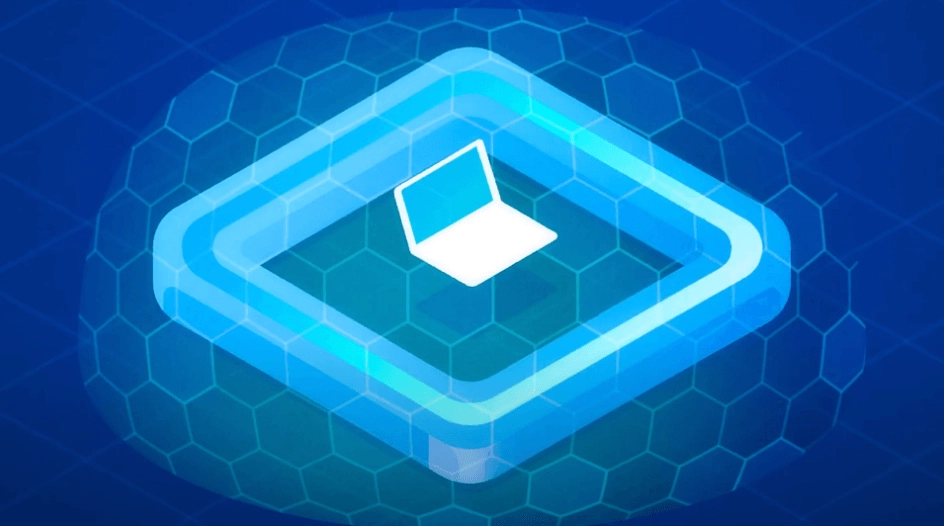
Backup Solution for Physical Server Environments

G2 Server Backup Leader
2025
For Business & Enterprise
Acronis Cyber Protect
Formerly Acronis Cyber Backup
Centralized cyber protection solution to streamline your endpoint protection, backup and disaster recovery, and management through integration and automation.
Now with EDR
Secure and reliable server backup

Linux Server backup
When it comes to safeguarding your Linux server infrastructure, Acronis Backup for Linux Server is your go-to solution. Protect your vital data with ease, whether it's files, directories, or complete server configurations. Restore data swiftly to avoid downtime and ensure seamless operations, all with the assurance of business continuity.
Windows Server backup
Secure your Windows server environment with Acronis Backup for Windows Server, the ultimate solution designed for Windows-specific needs. Back up everything from files and applications to system settings, ensuring the safety of your critical data. Swift data recovery means minimal disruption and uninterrupted business flow.
Learn how your peers protect their data
Your business deserves proven cyber protection










Comprehensive backup for physical environments
Centralized management
Effortlessly oversee backup and protection for physical servers, whether they are Linux or Windows, via a unified web dashboard. Simplify operations without juggling multiple tools.Adaptive monitoring and reporting
Gain valuable insights with intuitive widgets and advanced reporting tools. Stay informed with real-time alerts and status updates, ensuring proactive action.Universal recovery to different hardware
Acronis Cyber Protect provides a versatile recovery solution, allowing seamless restoration to dissimilar hardware or platforms. Bid farewell to time-consuming reinstallation processes.Ransomware defense
Ransomware threats often target backups directly. Acronis takes proactive measures to defend against such attacks, ensuring your backups remain intact and your operations uninterrupted.Robust encryption
Protect sensitive data with multi-tier encryption, both during data transit and while it's at rest in secure Acronis data centers.Efficient multi-tenant management
Ideal for decentralized setups, manage remote branches or departments with ease by assigning specific roles and access levels.Proactive hardware monitoring
Utilize AI algorithms to anticipate potential hardware failures, giving you ample time to take action and safeguard your data.Malware-free backups
Restore with confidence knowing that integrated malware scanning guarantees that your backups are free from hidden threats.Optimized storage with deduplication
Minimize storage requirements by capturing only modified data and recognizing duplicated information, ensuring efficient use of storage space.Versatile environment support
Bring together modern and traditional systems under a single backup solution. Manage all your physical servers from one dashboard, and easily migrate data between different hypervisors or between physical and virtual environments.Instant restore
Minimize downtime in the event of system failure by instantly booting your backup as a virtual machine, ensuring swift resumption of operations.Blockchain-based data notarization
Leverage blockchain technology with Acronis Cyber Notary to validate the authenticity and integrity of your stored data, ensuring it remains untampered and genuine.
Enhance the security of your physical server environment
In today's ever-changing digital landscape, safeguarding your critical physical server assets from unexpected losses, hardware issues, and evolving cyber threats is of utmost importance. Forward-thinking businesses recognize the need for comprehensive cyber protection, moving beyond conventional backups. Embrace the future of server security with Acronis Cyber Protect.
Comprehensive server backup solutions
Ensure swift and reliable recovery across a range of physical server platforms, shielding your assets from accidental and intentional disruptions.Cutting-edge server cybersecurity
Strengthen the security of your physical server infrastructure with advanced anti-malware tools, robust URL filtering, vulnerability assessments, and effective patch management.Unified management for diverse server environments
Boost the security of all aspects of your physical server setup while simplifying IT operations with an intuitive, comprehensive management system. Access it all through a unified dashboard.
Protect your physical server environments from any threat with a single solution
What the experts say
Looking for help?
Frequently Asked Questions
What is server backup software?
Server backup software is a crucial component of modern IT infrastructure management. It refers to specialized software designed to create and manage backups of data, applications, and configurations on servers. These backups are essential for safeguarding critical business information, ensuring data availability, and enabling disaster recovery in case of hardware failures, data corruption, or cyberattacks.
Server backup software offers several key functions and features:
1. Data Protection: The primary purpose of server backup software is to protect valuable data. It creates copies of files, folders, databases, and even entire server systems. This redundancy ensures that if the original data is lost or compromised, a clean and up-to-date copy can be restored.
2. Automated Backup: Server backup solutions automate the backup process, eliminating the need for manual intervention. Regular, scheduled backups reduce the risk of data loss due to human error or negligence.
3. Incremental Backups: Many server backup tools support incremental backups, where only new or modified data is backed up after the initial full backup. This conserves storage space and reduces backup times.
4. Data Recovery: In the event of data loss or server failure, server backup software facilitates quick and efficient data recovery. Users can restore specific files, folders, or complete system images to their original locations or to new hardware.
5. Versioning: Server backup solutions often provide versioning capabilities, allowing users to access and restore previous versions of files and documents. This is crucial for recovering from data corruption or unintended changes.
6. Security: Backup software includes security measures to protect backup data from unauthorized access. This can include encryption, access controls, and authentication mechanisms.
7. Remote and Cloud Backup: Many modern server backup solutions support remote and cloud-based backups. This is especially valuable for businesses with distributed teams or those looking to enhance disaster recovery capabilities.
8. Monitoring and Reporting: Comprehensive server backup software includes monitoring and reporting tools to keep administrators informed about the status of backups. Alerts and notifications ensure prompt action in case of backup failures.
9. Scalability: Server backup solutions should be scalable to accommodate the growing data needs of an organization. They should support various server environments, including Windows, Linux, and virtualized servers.
10. Compliance: For businesses in regulated industries, server backup software often includes features to help meet compliance requirements by ensuring data retention and security.
In conclusion, server backup software is a critical component of IT infrastructure, providing data protection, disaster recovery, and business continuity. It automates the backup process, ensures data integrity, and offers features like versioning, security, and scalability. As businesses increasingly rely on digital data, robust server backup software becomes indispensable for mitigating risks and ensuring the availability of critical information.What are the advantages of physical server backup?
Physical server backups offer several advantages critical to ensuring data integrity, business continuity, and disaster recovery in on-premises server environments. Here are the key benefits of physical server backups:
1. Data Protection: Physical server backups safeguard vital data, applications, and configurations from unexpected data loss due to hardware failures, human errors, data corruption, or cyber threats. By creating redundant copies of server data, these backups serve as a fail-safe mechanism.
2. Full Server Recovery: Physical server backups allow for complete system recovery. In the event of a catastrophic failure or server crash, organizations can restore the entire server to its previous state. This comprehensive recovery capability minimizes downtime and disruption to business operations.
3. Minimal Downtime: Physical server backups enable rapid recovery, reducing downtime to a minimum. This is essential for businesses that rely on continuous server availability to maintain productivity and serve customers effectively.
4. Business Continuity: With physical server backups in place, businesses can ensure business continuity in the face of unforeseen disasters or system failures. Even in the worst-case scenarios, organizations can quickly recover and resume operations.
5. Data Integrity: These backups preserve data integrity. Data consistency and reliability are maintained, ensuring that recovered data is accurate and free from errors or corruption.
6. Compliance Requirements: Many industries have stringent data retention and compliance requirements. Physical server backups provide a means to meet these regulations by ensuring that historical data is accessible and protected.
7. Customization: Physical server backups offer flexibility in terms of backup strategies. Organizations can customize backup schedules, retention policies, and recovery points to align with their specific needs and data management practices.
8. Offline Access: Unlike cloud-based backups, physical server backups are stored locally, allowing organizations to access and recover data even when internet connectivity is compromised. This is crucial for remote or geographically isolated locations.
9. Control: Organizations maintain complete control over their backup infrastructure with physical server backups. They can choose the backup hardware, storage media, and software solutions that best fit their requirements.
10. Security: Physical server backups can be isolated from the network, providing an additional layer of security against cyber threats like ransomware. Offline backups are less vulnerable to unauthorized access and malware attacks.
11. Cost-Effective: For businesses with significant on-premises infrastructure, physical server backups can be a cost-effective option in the long run. They eliminate recurring cloud storage costs associated with large volumes of data.
12. Scalability: Physical server backup solutions can scale as an organization grows. Additional hardware or storage resources can be easily integrated to accommodate expanding data storage needs.
In summary, physical server backups offer comprehensive data protection, rapid recovery, and business continuity. They ensure data integrity, meet compliance requirements, and provide customization options. With advantages like offline access, control, and security, physical server backups remain a valuable component of IT disaster recovery and data management strategies for on-premises server environments.Do I need a server backup solution?
Certainly, a server backup solution is essential for various scenarios and businesses of all sizes. Here are the reasons why you might need a server backup solution:
1. Data Loss Prevention: Accidental deletions, hardware failures, data corruption, or cyberattacks can result in significant data loss. A server backup solution ensures that your critical data, applications, and configurations are safely duplicated, minimizing the risk of data loss.
2. Business Continuity: Servers play a pivotal role in business operations. Any server downtime can lead to lost productivity and revenue. Server backups enable rapid recovery, reducing downtime and ensuring business continuity, even in the face of hardware failures or disasters.
3. Disaster Recovery: In the event of natural disasters, fires, floods, or other unforeseen events, having server backups is crucial. It allows you to recover your entire server infrastructure quickly, ensuring minimal disruption to your business.
4. Protection Against Cyber Threats: Cyberattacks, such as ransomware, can encrypt or compromise your data. A server backup solution provides a clean copy of your data from before the attack, enabling you to restore it without paying a ransom or losing critical information.
5. Compliance Requirements: Many industries have strict data retention and compliance regulations. Server backups help you meet these requirements by ensuring historical data is accessible and protected.
6. Data Integrity: Server backups maintain data integrity. This means that when you recover data, it's accurate and free from errors or corruption, ensuring the reliability of your information.
7. Customization: Server backup solutions offer flexibility. You can customize backup schedules, retention policies, and recovery points to align with your specific data management needs.
8. Cost Savings: While there may be initial costs associated with implementing a server backup solution, it can save you money in the long run. Data loss or prolonged server downtime can result in substantial financial losses, which a backup solution helps mitigate.
9. Security: Server backups can be stored securely, isolated from the network, and protected with encryption. This safeguards your data from unauthorized access and cyber threats.
10. Efficient Recovery: With a server backup solution, recovery is efficient and systematic. You can quickly restore specific files, folders, applications, or even entire servers, reducing downtime and ensuring a smooth recovery process.
11. Scalability: As your business grows, your data storage needs will increase. A server backup solution can scale with your organization, allowing you to add more storage capacity as required.
12. Peace of Mind: Knowing that your critical server data is backed up and can be restored in the event of any data loss or disaster provides peace of mind. It allows you to focus on your core business activities without constantly worrying about data-related risks.
In conclusion, a server backup solution is essential for safeguarding your data, ensuring business continuity, and meeting compliance requirements. Whether you run a small business or a large enterprise, the benefits of data protection, disaster recovery, and peace of mind make investing in a server backup solution a wise choice.Can Acronis Cyber Protect perform a full server backup?
Yes, Acronis Cyber Protect is a versatile and comprehensive cybersecurity solution that includes the capability to perform full server backups. Here's how Acronis Cyber Protect can perform a full server backup:
1. Image-Based Backups: Acronis Cyber Protect employs image-based backup technology, allowing you to capture an exact copy or 'image' of your entire server, including the operating system, applications, configurations, and data. This comprehensive backup ensures that all elements of your server are protected.
2. Bare-Metal Recovery: With Acronis Cyber Protect, you can perform full server backups and then restore them to the same hardware, dissimilar hardware, or even a bare-metal machine without compatibility concerns. This flexibility ensures that your server can be swiftly recovered, regardless of the hardware available.
3. Easy-to-Use Interface: Acronis Cyber Protect features an intuitive and user-friendly interface, making it easy for IT professionals to initiate and manage full server backups. The software provides step-by-step guidance, simplifying the backup process.
4. Customized Backup Schedules: You can customize backup schedules to align with your server's specific needs. Acronis Cyber Protect allows you to define when and how often full server backups occur, ensuring data protection without disrupting regular operations.
5. Incremental and Differential Backups: While full server backups are crucial, Acronis Cyber Protect also supports incremental and differential backups. These methods only capture changes made since the last backup, reducing backup times and storage requirements while maintaining comprehensive protection.
6. Fast Recovery: In the event of data loss, hardware failure, or other disasters, Acronis Cyber Protect enables rapid server recovery. You can restore your entire server from a full backup, minimizing downtime and ensuring business continuity.
7. Data Encryption: Acronis Cyber Protect prioritizes data security. It encrypts your server backups both in transit and at rest using military-grade AES-256 encryption, ensuring that your sensitive information remains confidential and protected.
8. Scalability: Acronis Cyber Protect is designed to meet the needs of businesses of all sizes. Whether you have a single server or a complex server infrastructure, the solution can scale to accommodate your requirements.
9. Hybrid Protection: Acronis Cyber Protect offers hybrid protection by storing backup copies in multiple locations, including local storage and the Acronis Cloud. This redundancy ensures that your full server backups are accessible and secure, even in the face of local hardware failures or disasters.
In summary, Acronis Cyber Protect is a powerful and versatile cybersecurity solution that can perform full server backups efficiently. Its image-based backup technology, flexible recovery options, user-friendly interface, and robust security features make it a reliable choice for protecting your server environments. Whether you need to safeguard a single server or an entire network, Acronis Cyber Protect can meet your backup and recovery needs.How often should servers be backed up?
The frequency of server backups depends on various factors, including your specific business needs, the criticality of the data, and your disaster recovery strategy. Here are some guidelines to help determine how often servers should be backed up:
1. Daily Backups: For most businesses, performing daily backups is a common practice. This ensures that changes made to data within a 24-hour period are protected. Daily backups are suitable for servers hosting critical data or databases that see frequent updates.
2. Continuous Data Protection (CDP): Some organizations, especially those with very high data change rates or strict recovery point objectives (RPOs), opt for continuous data protection solutions. CDP continuously captures changes at the byte or block level, offering near real-time backups. This approach minimizes data loss in the event of a failure.
3. Weekly Backups: Servers hosting less critical data or those with lower change rates might perform weekly backups. This schedule balances data protection with storage efficiency.
4. Bi-Weekly or Monthly Backups: Servers with static or less frequently updated data, like archives or historical records, may be backed up less frequently. This reduces the storage overhead and backup management workload.
5. Transactional Data Backups: For servers that handle transactional data (e.g., financial transactions, online orders), backups should align with transaction cycles. Depending on the volume, these could be hourly or even more frequent.
6. Customized Backup Schedules: Consider the specific needs of your servers. You can create customized backup schedules for each server based on its role and data change rate. Critical servers may require more frequent backups than less critical ones.
7. Near-Real-Time Replication: In addition to backups, consider implementing near-real-time data replication for critical servers. This technology keeps a copy of data synchronized with the primary server, reducing the recovery point to almost zero.
8. Regular Testing: Regardless of the backup frequency, it's essential to regularly test your backups to ensure they are complete and restorable. Testing helps identify any issues with the backup process or data corruption.
9. Compliance Requirements: Some industries have specific data retention and backup frequency requirements due to regulatory compliance. Ensure your backup strategy aligns with these mandates.
10. Business Continuity Plan: Your server backup frequency should align with your overall business continuity plan. Define your recovery time objectives (RTOs) and recovery point objectives (RPOs) to guide your backup strategy.
In summary, there is no one-size-fits-all answer to how often servers should be backed up. It's crucial to assess your business needs, data criticality, and recovery objectives to determine an appropriate backup frequency. Regularly review and adjust your backup strategy as your business evolves or as data requirements change to ensure the ongoing protection of your servers and data.
Sorry, your browser is not supported.
It seems that our new website is incompatible with your current browser's version. Don’t worry, this is easily fixed! To view our complete website, simply update your browser now or continue anyway.





